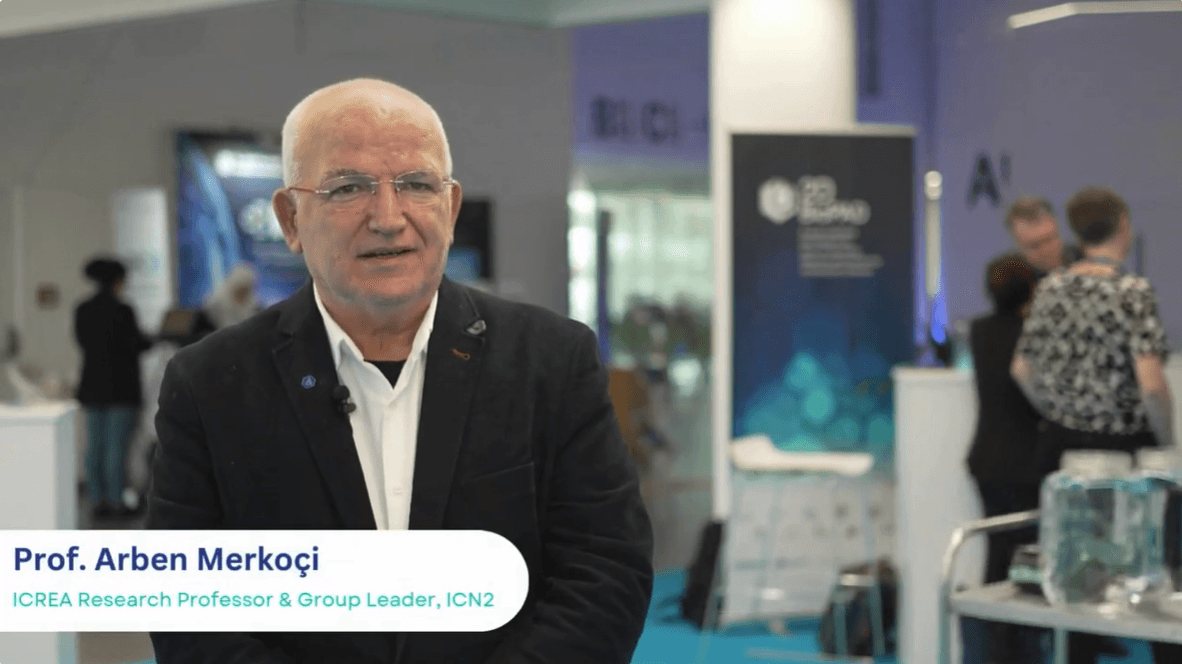
During Graphene Week 2024, Prof. Arben Merkoçi from the Catalan Institute of Nanoscience and Nanotechnology (ICN2) gave an insightful interview on the advancements in graphene-based biosensors as part of the 2D-BioPAD project, a member of the Graphene Flagship Initiative.
Prof. Merkoçi explained why graphene is so useful for these applications and how his team is working to solve real-world health problems with this material. He talked about how graphene’s special properties—like its ability to conduct electricity and its flat structure—make it perfect for biosensors. He explained that his team combines graphene with gold nanoparticles and uses techniques like laser scribing to improve its performance. This creates a strong, sensitive sensor that can detect important health markers, like those for Alzheimer’s disease.
He also described how his team is using graphene in devices similar to lateral flow tests. By combining graphene with nitrocellulose, the team can make sensors that handle small amounts of liquid well and give accurate results. This combination of materials allows them to build portable devices that are small but powerful enough to be used outside hospitals.
Prof. Merkoçi shared that, after a year of 2D-BioPAD’s work, the team has made progress in improving the sensitivity of their sensors and adding magnetic particles to help manage the flow of liquid samples. While there are still challenges, like avoiding interference during testing, the team has created a prototype and is now focusing on testing it with real clinical samples.
He explained that the project is not just important for the research team but also for the Graphene Flagship and Europe. Success in this project will show how graphene can solve medical problems in ways that other materials cannot. Prof. Merkoçi said the goal is to create tools that help doctors detect diseases like Alzheimer’s early, without needing patients to visit a hospital. These tools could make healthcare more accessible and help many people.
Prof. Merkoçi believes that the work being done on the 2D-BioPAD project is a big step forward for graphene research and for solving important health challenges in Europe and beyond.
Watch the full interview here.